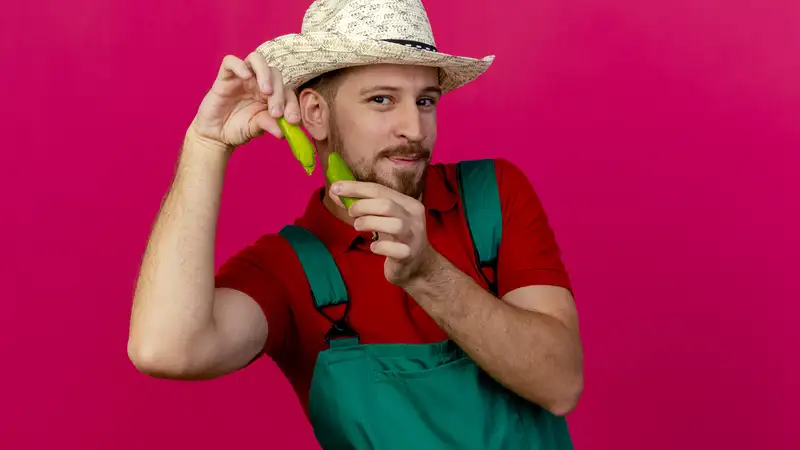
The Vibrant World of Mexican Male Comedians
In recent years, Mexican comedians have carved “mexican comedians male”out a unique and significant space in the global comedy scene. Their humor, often rich with cultural nuances, explores themes ranging from everyday life to the absurd. This article delves into the lives and careers of some prominent Mexican male comedians who have made substantial impacts both locally and internationally. We will explore their distinctive styles, influences, and contributions to the comedic landscape.
1. Eugenio Derbez: A Multi-Talented Comedy Icon
Eugenio Derbez stands out as one of Mexico’s most versatile and influential comedians. Born in Mexico City in 1962, Derbez began his career in the early 1980s. His comedy combines physical humor, witty dialogue, and a keen observation of human nature.
Derbez gained fame with his role in the hit “mexican comedians male”television show Al Derecho y al Derbez. His character portrayals, including the beloved “Dr. Cándido Pérez,” showcased his remarkable ability to blend humor with relatable situations. This success led him to create and star in other popular shows such as XHDRBZ and La Familia P. Luche.
Internationally, Derbez has broadened his reach through his work in Hollywood. His roles in films like Instructions Not Included and How to Be a Latin Lover earned him acclaim outside the Spanish-speaking world. Derbez’s success highlights his ability to cross cultural boundaries and appeal to diverse audiences through universal themes and humor.
2. Franco Escamilla: The “Comedian of the People”
Franco Escamilla, known as the “Comedian of the People,” has gained a massive following through his stand-up comedy and innovative approach to humor. Born in 1979 in Mexico City, Escamilla’s style combines observational humor with a deep understanding of Mexican culture.
Escamilla’s comedy often addresses the everyday struggles of ordinary people, making his humor relatable and accessible. His stand-up specials, such as Risa y Salsa and Por la Anécdota, highlight his knack for turning mundane situations into comedic gold. Escamilla’s rise to prominence on social media platforms further cemented his status as a leading figure in modern Mexican comedy.
Beyond stand-up, Escamilla has ventured into podcasting and television, showcasing his diverse talents. His podcast La Mesa Reñoña features discussions with fellow comedians, offering insights into the comedic process and the industry.
3. Ricardo Pérez: The New Wave of Mexican Comedy
Ricardo Pérez, born in 1981, represents the new wave of Mexican comedy with his fresh and energetic approach. Pérez’s humor often incorporates elements of absurdity and satire, making his performances both entertaining and thought-provoking.
Pérez gained recognition through his work on comedy shows and podcasts. His show El Colectivo de la Risa became a platform for showcasing emerging comedic talent and exploring various comedic styles. Pérez’s contributions to comedy include his role as a host on El Humor de México and his participation in comedy festivals, where he consistently brings new and innovative perspectives to the stage.
Pérez’s success illustrates the evolving nature of Mexican comedy and the emergence of new voices that push the boundaries of traditional humor.
4. Chumel Torres: Satire and Social Commentary
Chumel Torres, born in 1982, is renowned for his”mexican comedians male” satirical take on current events and social issues. Torres’s approach to comedy often involves sharp wit and incisive commentary on politics and society, making him a significant voice in Mexican comedic discourse.
Torres gained prominence with his YouTube channel El Pulso de la República, where he provides humorous critiques of political and social events. His ability to blend humor with critical analysis has resonated with audiences seeking both entertainment and insight into current affairs.
Torres’s influence extends beyond comedy into journalism and social commentary, reflecting his commitment to using humor as a tool for social reflection and change.
5. Carlos Ballarta: The Master of Deadpan Humor
Carlos Ballarta, born in 1988, is celebrated for his distinctive deadpan delivery and irreverent humor. Ballarta’s comedic style often involves a dry, understated approach, which contrasts sharply with more animated forms of humor.
Ballarta’s stand-up specials, such as El Amigo de Todos and Comediante Mexicano, showcase his ability to tackle a wide range of topics with a unique perspective. His humor often explores themes of identity, personal experiences, and societal norms, all delivered with his signature deadpan style.
Ballarta’s success highlights the diversity of comedic styles within the Mexican comedy scene and his role in expanding the boundaries of traditional humor.
6. Adal Ramones: Pioneering Mexican Comedy
Adal Ramones, born in 1961, has played a pioneering”mexican comedians male” role in shaping the Mexican comedy landscape. His career spans several decades, during which he has made significant contributions to television and stand-up comedy.
Ramones is best known for his work on the television show Otro Rollo, which became a cultural phenomenon in Mexico. The show’s blend of humor, celebrity interviews, and sketches reflected Ramones’s innovative approach to comedy. His influence extended to other comedic projects and performances, establishing him as a key figure in Mexican entertainment.
Ramones’s impact on comedy continues to be felt, as he remains a respected figure in the industry and a mentor to emerging comedians.
Conclusion
The realm of Mexican male comedians is rich and diverse, featuring a range of styles and voices that contribute to a vibrant comedic tradition. From the versatile Eugenio Derbez to the satirical Chumel Torres, each comedian brings a unique perspective to the stage. Their humor reflects the complexities of Mexican culture and society while resonating with audiences worldwide.
As the global comedy scene continues to evolve, Mexican”mexican comedians male” comedians will undoubtedly remain at the forefront, shaping and redefining humor through their distinctive voices and innovative approaches. Their contributions highlight the power of comedy to entertain, challenge, and connect people across cultures and borders. See More
